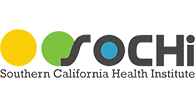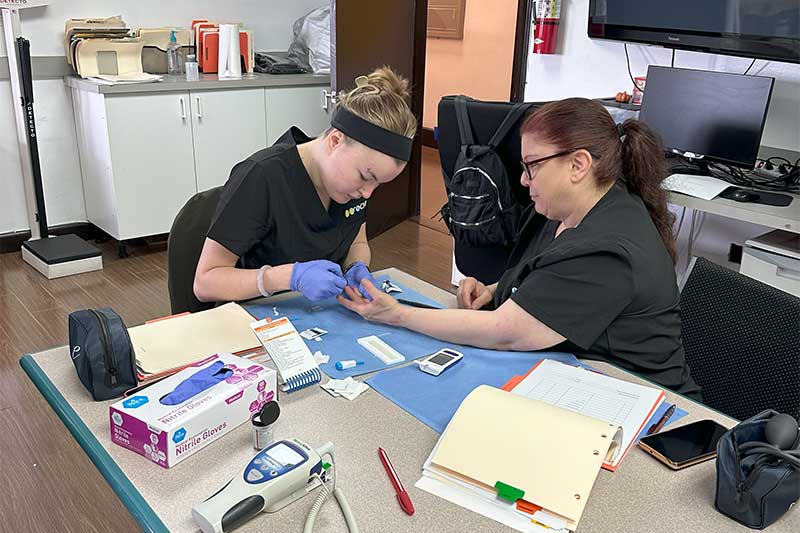In the dynamic world of sports rehabilitation, physical therapists constantly seek innovative techniques to aid athletes in their recovery journeys. Effective rehabilitation is crucial for getting back to peak performance from amateur players to professional athletes. This blog post dives deep into specialized techniques in sports rehabilitation therapy that can significantly improve recovery outcomes.
Why Specialized Techniques Matter in Sports Rehabilitation
Specialized techniques in sports rehabilitation are essential because they target specific injuries and recovery needs. Standard treatment plans often need to be revised when dealing with unique sports injuries, hence the need for more customized approaches. These techniques speed up recovery and reduce the risk of re-injury, ensuring athletes can perform at their best.
The Top 8 Recovery Techniques in Sports Rehabilitation Therapy
Learn expert recovery techniques in sports rehabilitation therapy. Enhance your practice and help athletes recover faster.
1. The Role of Advanced Diagnostics
Advanced diagnostics play a pivotal role in identifying the precise nature of an injury. Using tools like MRI scans and ultrasound imaging, therapists can accurately pinpoint damage. This level of precision allows for the development of tailored rehabilitation plans, enhancing the effectiveness of subsequent treatments.
Benefits of Precision Diagnostics
The main advantage of precision diagnostics is the ability to customize treatment plans. Accurate imaging provides detailed insights into the extent of soft tissue damage, ligament tears, or bone fractures. This information is crucial for designing effective recovery protocols that address each athlete’s specific needs.
Integrating Technology in Diagnostics
Incorporating technology in diagnostics also helps monitor progress. Biomechanical analysis systems offer real-time feedback, allowing therapists to adjust treatment plans dynamically. This leads to more adaptive and responsive rehabilitation processes, significantly improving recovery times.
Case Studies in Advanced Diagnostics
Several case studies highlight the effectiveness of advanced diagnostics in sports rehabilitation. For instance, an athlete with a complex shoulder injury benefited significantly from combining MRI scans and biomechanical analysis, leading to a faster and more comprehensive recovery.
2. The Power of Manual Therapy
Manual therapy remains a cornerstone of sports rehabilitation. Techniques such as joint mobilization, soft tissue manipulation, and myofascial release are widely used to alleviate pain and restore function.
Joint Mobilization
Joint mobilization involves passive movements applied to joints to improve mobility and reduce pain. This technique is particularly effective for athletes recovering from joint-related injuries, such as sprains or dislocations.
Soft Tissue Manipulation
Soft tissue manipulation targets muscles, tendons, and ligaments to relieve tension and improve circulation. This method is highly beneficial for addressing muscle strains and helping athletes regain their range of motion.
Myofascial Release
Myofascial release focuses on releasing tension in the fascia, the connective tissue surrounding muscles. This technique helps reduce pain and improve flexibility, which is essential for athletes returning to high-intensity sports.
3. The Impact of Neuromuscular Re-education
Neuromuscular re-education is a technique that helps retrain the nervous system to improve muscle strength and coordination. This approach is crucial for athletes who have experienced significant injuries that affect their motor functions.
Techniques in Neuromuscular Re-education
Techniques such as proprioceptive neuromuscular facilitation (PNF) and balance training are commonly used. These methods help improve muscle response and coordination, which is vital for recovery and preventing future injuries.
Benefits for Athletes
Neuromuscular re-education has numerous benefits, including enhanced muscle control and reduced injury recurrence. Athletes who undergo this therapy often report improved performance and greater confidence in their physical abilities.
Real-world Applications
Real-world applications of neuromuscular re-education show promising results. For example, a basketball player recovering from an ACL tear regained full functionality and returned to the court faster than expected, thanks to targeted neuromuscular training.
4. Aquatic Therapy for Low-impact Recovery
Aquatic therapy offers a unique, low-impact environment for rehabilitation. Water’s buoyancy reduces joint stress, making it ideal for athletes with significant injuries or those in the early stages of recovery.
Techniques in Aquatic Therapy
Techniques such as water walking, resistance exercises, and hydrotherapy jets are commonly used. These exercises help improve strength, flexibility, and endurance without the risk of further injury.
Benefits of Aquatic Therapy
The primary benefits of aquatic therapy include reduced pain, improved circulation, and faster recovery times. When incorporating aquatic therapy into their rehabilitation programs, athletes often find that they can resume more intense physical activities sooner.
Success Stories in Aquatic Therapy
Success stories abound in aquatic therapy. For instance, a long-distance runner with a severe ankle sprain could maintain cardiovascular fitness and muscle strength through water-based exercises, leading to a quicker return to running.
5. The Integration of Strength Training
Strength training is a critical component of sports rehabilitation. It helps rebuild muscle mass, enhance endurance, and protect against future injuries.
Tailored Strength Training Programs
Tailored strength training programs are designed to meet the specific needs of each athlete. These programs focus on improving muscle balance and addressing weaknesses that may have led to the initial injury.
Equipment and Techniques
Therapists can create comprehensive strength training routines using equipment like resistance bands, free weights, and specialized machines. Techniques such as progressive overload and isometric holds are particularly effective in building muscle strength.
Monitoring Progress
Monitoring progress is essential in strength training. Regular assessments help ensure that athletes progress appropriately and that the training intensity is adjusted as needed to avoid overtraining or re-injury.
6. The Role of Psychological Support
Psychological support is an often overlooked aspect of sports rehabilitation. Mental health significantly impacts physical recovery, and psychological support can enhance overall outcomes.
Techniques for Psychological Support
Techniques such as cognitive-behavioral therapy (CBT), mindfulness, and stress management are commonly used. These methods help athletes manage the emotional challenges associated with injury and recovery.
Benefits of Psychological Support
The benefits of psychological support include improved mental health, enhanced motivation, and better adherence to rehabilitation programs. Athletes who receive psychological support are more likely to achieve successful recovery.
Real-life Examples
Real-life examples illustrate the importance of psychological support. A professional soccer player struggling with depression after a career-threatening injury found renewed motivation and successfully returned to competition after receiving comprehensive mental health support.
7. The Importance of Nutrition in Recovery
Nutrition plays a vital role in sports rehabilitation. Proper diet and supplementation can significantly enhance recovery and performance.
Dietary Guidelines for Recovery
Dietary guidelines for recovery emphasize the importance of balanced nutrition, including adequate protein intake, anti-inflammatory foods, and hydration. These elements are essential for tissue repair and overall health.
Supplements and Their Benefits
Supplements such as omega-3 fatty acids, glucosamine, and antioxidants are commonly recommended. These supplements can help reduce inflammation, support joint health, and promote faster recovery.
Case Studies in Nutritional Support
Case studies in nutritional support highlight the positive impact of diet on recovery. For example, a track athlete recovering from a hamstring injury experienced faster healing and reduced muscle soreness by following a tailored nutritional plan.
8. The Future of Sports Rehabilitation Therapy
The future of sports rehabilitation therapy looks promising with ongoing advancements in technology and research.
Emerging Techniques and Technologies
Emerging techniques such as regenerative medicine, wearable technology, and virtual reality are set to revolutionize sports rehabilitation. These innovations offer new ways to enhance recovery and improve outcomes.
Impact on Practice
The impact on practice will be significant as these new techniques become more widely adopted. Therapists must stay updated on the latest developments and continuously refine their skills to provide the best care for their patients.
Preparing for the Future
Preparing for the future involves ongoing education and professional development. Staying informed about the latest research and technological advancements will ensure that therapists can offer the most effective treatments.
Conclusion
In conclusion, specialized techniques in sports rehabilitation therapy are essential for achieving optimal recovery outcomes. By integrating advanced diagnostics, manual therapy, neuromuscular re-education, aquatic therapy, strength training, psychological support, and nutrition, physical therapists can provide comprehensive care that meets each athlete’s unique needs. Staying updated on emerging technologies and continuing education will ensure that therapists remain at the forefront of this dynamic field.
To further enhance your expertise and stay ahead in sports rehabilitation, consider signing up for our program and upcoming workshops. Together, we can continue to push the boundaries of what’s possible in sports rehabilitation therapy.




